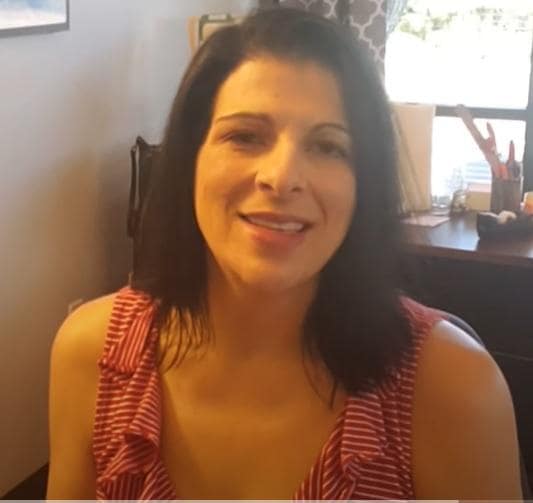As an experienced landlord, you likely collect a security deposit and first month’s rent from all your tenants. As a first-time real estate investor, it’s time you realize the importance of collecting these two things.

However, whether new to the rental property business in Phoenix or not, you might be wondering whether to collect last month’s rent before move-in time.
Knowing the pros and cons of collecting last month’s rent is crucial to your success. While there’s no one right way to collect money from your tenants, knowing your options will help you make the best decision for you and your bottom line.
What is Last Month’s Rent?
Last month’s rent is money you collect from your tenants when they move into your Phoenix rental property. It is equal to one month of rent. It is used at the end of the lease agreement to cover the last month of rent your tenants owe you. Both you and your tenants agree to this collection of money and it is documented in the signed lease agreement.
The problem with last month’s rent is that many landlords confuse it with two other common deposits:
- Security Deposit: this money is collected at the start of a new lease term and ranges from one to three months’ worth of rent. It is designed to protect you from things such as excessive damage, unpaid rent, or a breach of the lease. If your tenants violate the lease in any way, this money is used by you to offset the costs.
- First Month’s Rent: this money is also collected at the start of a new lease term. It is equal to one month of rent and is used to cover the first month of your tenant’s lease term. This helps to offset the cost of a lease termination should your tenants decide to move out early on in the tenancy.
Pros of Collecting Last Month’s Rent at Move-In
Though it seems like a lot of money to collect at the start of a new lease term, collecting last month’s rent at move-in is very beneficial.
1. Vet Higher Quality Tenants
Despite you or your local property management company having a strict tenant screening process in place, it doesn’t hurt to vet high-quality tenants in other ways too. After all, the last thing you want is a problem tenant in your valuable Phoenix investment property.
Typical tenant screening involves background and credit checks, income and employment verifications, and reference checks. However, collecting last month’s rent shows you that your new tenants have plenty of cash on hand.
In other words, they can actually afford your rental. Because of this, it’s safer to assume they will not be late on their rent payments, or worse yet, fail to pay at all. In all, it helps attract the high-quality and financially stable tenants you want leasing from you.
2. Extra Cash in Your Pocket
One thing many tenants assume is that they can use the security deposit they paid to cover their last month of rent. However, this is not allowed and can result in a penalty of up to three times the amount of rent owed to you.
Yet, tenants sometimes do this anyways and leave you scrambling in court to collect the money that belongs to you.
By collecting last month’s rent before move-in, you give yourself some wiggle room in case your tenants try to leave without paying for their last month of rent. This is especially helpful in Phoenix because landlords can only legally collect up to one and a half month’s rent for a security deposit.
3. Additional Financial Protection
No one places a tenant in their Phoenix rental property with the belief they will damage it, fail to pay rent, or break any of the lease provisions. But things happen and sometimes you have to deal with a problem tenant.
With a security deposit on hand, as well as last month’s rent, you can protect yourself from a tenant that has caused a lot of damage or abandoned your property unexpectedly. Though it won’t cover all the costs you incur, it definitely helps. If anything, the additional money will buy you some more time to place a better-suited tenant in your rental.
Cons of Collecting Last Month’s Rent at Move-In
Though there are some advantages to collecting last month’s rent at move-in, there are also some cons to consider.
1. Shrinking Tenant Pool
Despite being able to better vet your potential tenants by collecting last month’s rent at the time of move-in, you also risk shrinking your tenant pool. A prospective tenant may have the money on hand to cover a security deposit and first and last month’s rent. But that doesn’t mean they will. If there are nearby rentals with landlords that don’t ask for that much money upfront, you could find yourself losing to your local competition.
If this happens, you’ll end up with an extended vacancy and less money coming in each month. Weighing the cost of a vacancy against a potential problem that may or may not happen can be tough. Sometimes, you’ll have to take a risk in order to place a tenant and start collecting rent.
2. Interest Accrual
Though you don’t have to pay interest to tenants on security deposits in Arizona, there is very little information about whether you have to pay interest them on last month’s rent. That said, even if you don’t have to now, rules and regulations are always changing.
As a landlord, you have to keep up with federal, state, and local landlord-tenant laws at all times. According to this San Diego property management company, this means that the rules about interest accrual could change and you could be responsible for paying your tenant at the end of their lease.
3. Last Month’s Rent Use is Limited
If you collect last month’s rent from your Phoenix tenants, you cannot use it for things such as:
- Missing utility payments
- Pet-related damages
- Damage to your rental
- Late rent or other fees
- Rent owed to you besides last month’s rent
If it is not explicitly stated in the lease agreement, you cannot use last month’s rent on anything other than last month’s rent. If you do, you could find yourself in court facing your tenant. This is why it’s always recommended that if you are going to collect last month’s rent you collect a security deposit too.
4. Increasing Rent Becomes Challenging
Landlords are always trying to increase their rental property income and rightfully so. After all, owning an investment property in Phoenix is meant to supplement your income. However, if you want to offer your existing tenants a lease renewal and increase their rent, you could find yourself in a tricky situation.
The last month’s rent you collect at the start of the lease term always carries over into a lease renewal. But if you raise the rent on the second term, unless you collect more money from your tenants, the last month’s rent amount you originally collected stays the same. In other words, come the end of the second lease term, you’ll take a loss on the last month of rent.
Final Thoughts
Are you in need of Phoenix Property Management? Then contact us today and see how we can help you collect the right amount of money from your tenants at move-in so that you are protected and your tenants are happy.
At Real Property Management Phoenix Valley, we understand the importance of protecting your bottom line. Whether it be property damage or nonpayment of rent, recovering your losses is a priority that we take seriously. That’s why we dedicate ourselves to screening for high-quality tenants, collecting the right amount of deposits at move-in, and doing everything in our power to ensure your Phoenix property is well-cared for and rent is delivered straight to you each month.

